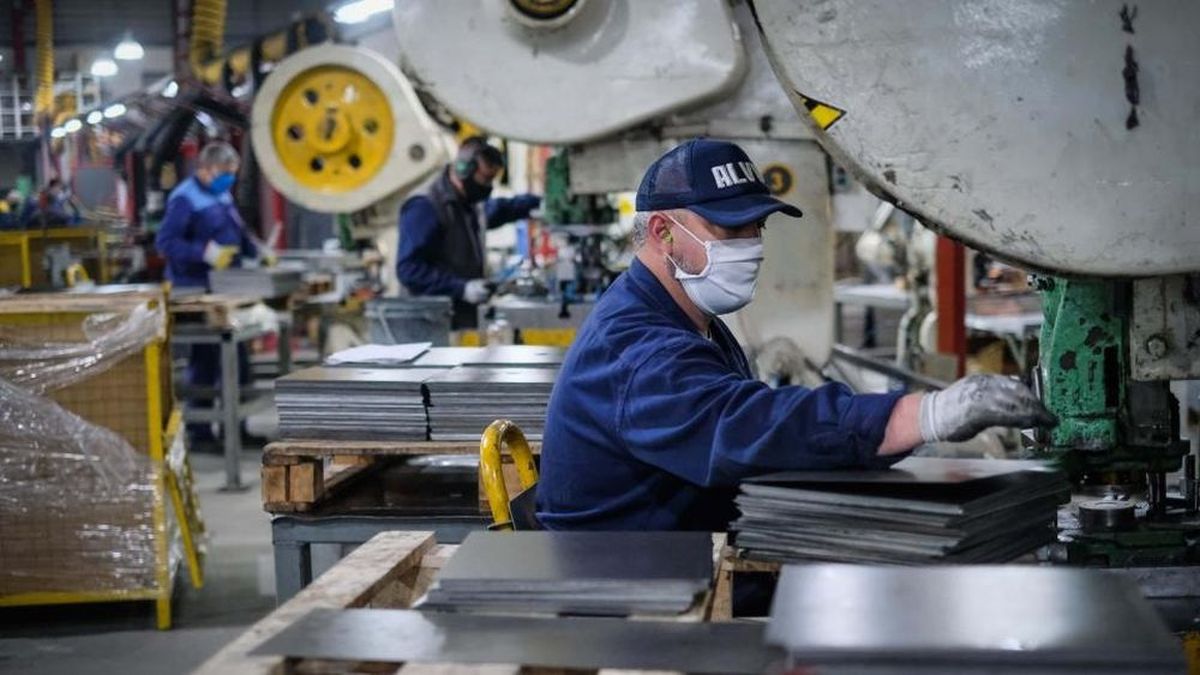The activity level seeks to recover and leave behind double digit drops of the different productive sectors, due to the recession. As in the rest of the country, Buenos Aires still suffers the consequences of the economic recession: among january and decemberhe 40% of more than 800 companies surveyed had to lay off workers to overcome the obstacles of the economic context.
The data comes from a official report of the Ministry of Production, Science and Technological Innovation of the province of Buenos Aires over 75 municipalities surveyed, where 885 companies included in the survey operate.
Since the second half of the year, the levels of Monthly Estimator of Economic Activity (EMAE) show a positive trend in terms of activity level. However, the magnifying glass on the recovery marks a disparate and heterogeneous evolution, depending on the sector analyzed.
In this sense, the Province seeks follow a path of reactivation of their activities, but the consequences of the recessionary blow that occurred particularly in the first quarter are still valid.
Thus, the contraction in the economy generated that between January and December 40.5% of the more than 800 companies surveyed they will choose reduce staff (fire), while the second measure with the greatest impact was definitive closure of the business, in a 27.8%.
59851739-E129-41D4-8DFC-BCC53FF12AE2.jpeg
Official report of the Province of Buenos Aires.
On the other hand, the shift reduction ranked third for the 20.3% of entitieswhile in fourth and fifth place are the suspensions in a 6.5% and early vacationfor a 4.8% of the companies surveyed.
According to the report itself, the measures taken as a palliative to maintain the operation of the machines (as of October, The installed capacity was 63.2%lower than that of the same month of 2023 by 2.1 pp), affected 17,668 employees, of which a 36.5% suffered the loss of their jobwhile the 25.2% was affected by the suspensions and the 21.2% for the shift reduction.
Of the universe of workers surveyed by the Province between January and December, they were 8,203 workers who were harmed by the last option chosen by the employers: reducing the payroll of employees or closing the company permanently.
Industry, the sector most affected by the economic recession
Regarding the items most compromised by the drop in the level of economic activity, the ranking is led by industrywith 423 companies in the sector (47.7%) who were forced to implement any of the measures described.
In that sense, 12,835 industrial jobs were seen affectedwhile 4,806 Jobs were directly lost. The sector metallurgical, automotive, chemical, nutritional and textile They were the most vulnerable to the crisis and, therefore, those that adopted the most measures aimed at reducing personnel.
Layoffs: the most resonant cases within PBA
There are concrete examples to clarify the magnitude of the numbers displayed. As the province of Buenos Aires is characterized as an industrial hub, it brings together large and well-known companies that were inevitably harmed by the economic context.
In this sense, the report of the Ministry of Production, Science and Technological Innovation highlights, among others, the case of Nature (Avon), where they met 293 people affected by the definitive closure of the plant San Fernando. The one of CAREMthe company dedicated to the electricity, gas and water service that fired 260 workers in Zarateor that of exRed Crestthe poultry plant that closed its doors in Esteban Echeverrialeaving 200 people outside of their activities.
Activity recovers, but the opening of imports and the cheap dollar threaten jobs
Looking at the panorama of the Buenos Aires labor market, the question is what to expect next year in terms of activity.
Martin Kalosdirector of EPyCA consultants, points out that the level of economic activity “improved in recent months” and it is already approaching “sustainability levels”.
However, he also warns that “there is still a lot of heterogeneity” in the analysis: “There are many SMEs in different regions of the country, particularly in the suburbs, which They still haven’t found that sustainability and they don’t believe it will arrive soon, because it still doesn’t sell enough to cover costs,” explains the economist.
For this reason, there are still businessmen who continue to finance the payment of salaries and costs in general out of their own pockets, but “They no longer see that their livelihood is in danger“, therefore, “let’s see fewer cases of vacations or early technical stops, suspensions or layoffs” than during 2024.
In any case, it is considered likely that the replacement of personnel in the event of resignation or retirement will be infrequent, a process that was accentuated from the middle of the year onwards. “I don’t think there will be so many layoffs, but yes less incorporation of jobs within the registered private sectorespecially in industry and services,” estimates Kalos.
Still, the dynamics of the exchange rate appreciation along with tax rules that they play in favor of import of products can generate problems in terms of competitiveness. “This is where we are going to continue to have specific cases of companies that cannot endure and must take measures like these,” concludes the director of EPyCA.
Source: Ambito




